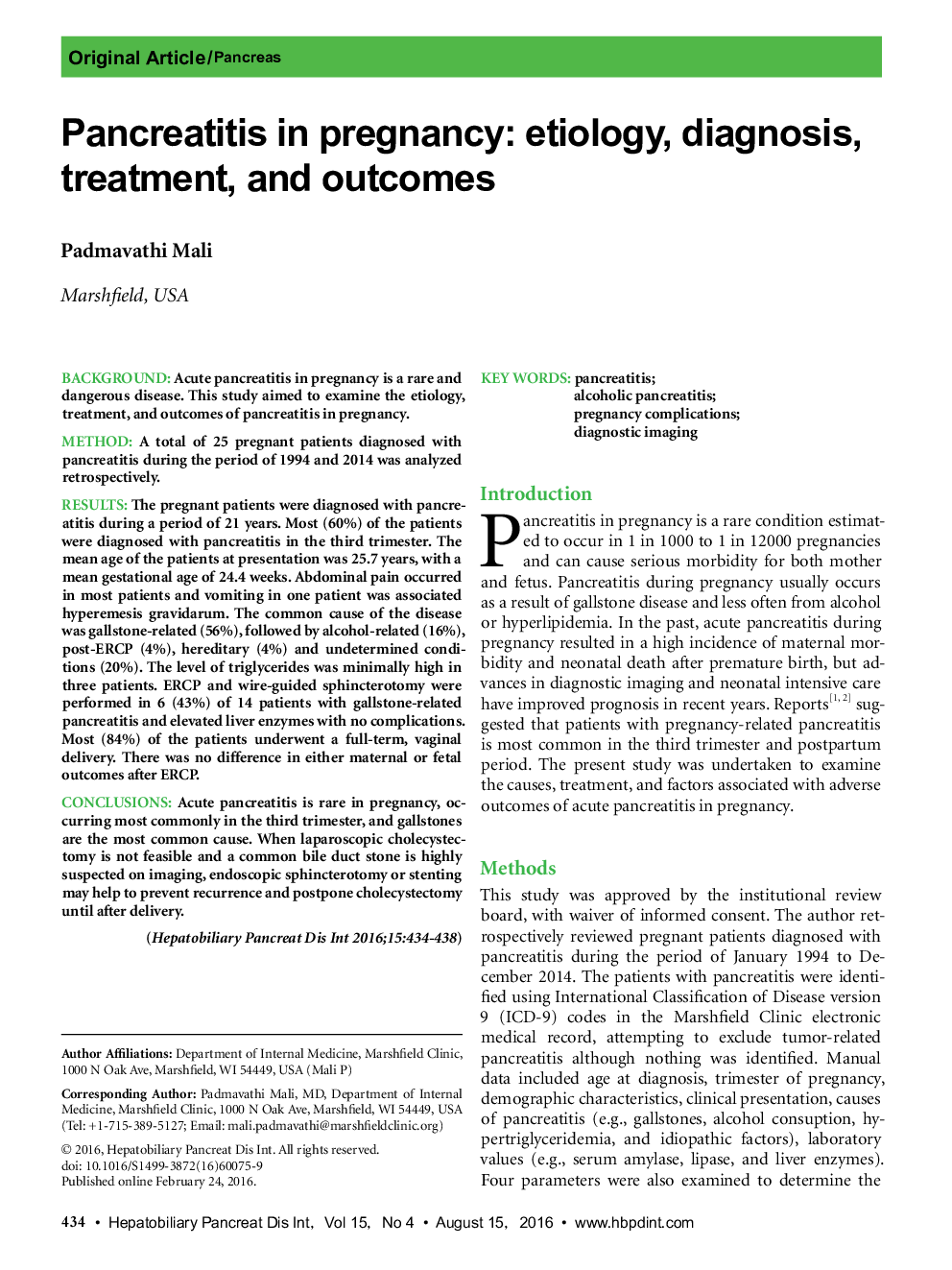| Article ID | Journal | Published Year | Pages | File Type |
|---|---|---|---|---|
| 3337118 | Hepatobiliary & Pancreatic Diseases International | 2016 | 5 Pages |
BackgroundAcute pancreatitis in pregnancy is a rare and dangerous disease. This study aimed to examine the etiology, treatment, and outcomes of pancreatitis in pregnancy.MethodA total of 25 pregnant patients diagnosed with pancreatitis during the period of 1994 and 2014 was analyzed retrospectively.ResultsThe pregnant patients were diagnosed with pancreatitis during a period of 21 years. Most (60%) of the patients were diagnosed with pancreatitis in the third trimester. The mean age of the patients at presentation was 25.7 years, with a mean gestational age of 24.4 weeks. Abdominal pain occurred in most patients and vomiting in one patient was associated hyperemesis gravidarum. The common cause of the disease was gallstone-related (56%), followed by alcohol-related (16%), post-ERCP (4%), hereditary (4%) and undetermined conditions (20%). The level of triglycerides was minimally high in three patients. ERCP and wire-guided sphincterotomy were performed in 6 (43%) of 14 patients with gallstone-related pancreatitis and elevated liver enzymes with no complications. Most (84%) of the patients underwent a full-term, vaginal delivery. There was no difference in either maternal or fetal outcomes after ERCP.ConclusionsAcute pancreatitis is rare in pregnancy, occurring most commonly in the third trimester, and gallstones are the most common cause. When laparoscopic cholecystectomy is not feasible and a common bile duct stone is highly suspected on imaging, endoscopic sphincterotomy or stenting may help to prevent recurrence and postpone cholecystectomy until after delivery.
